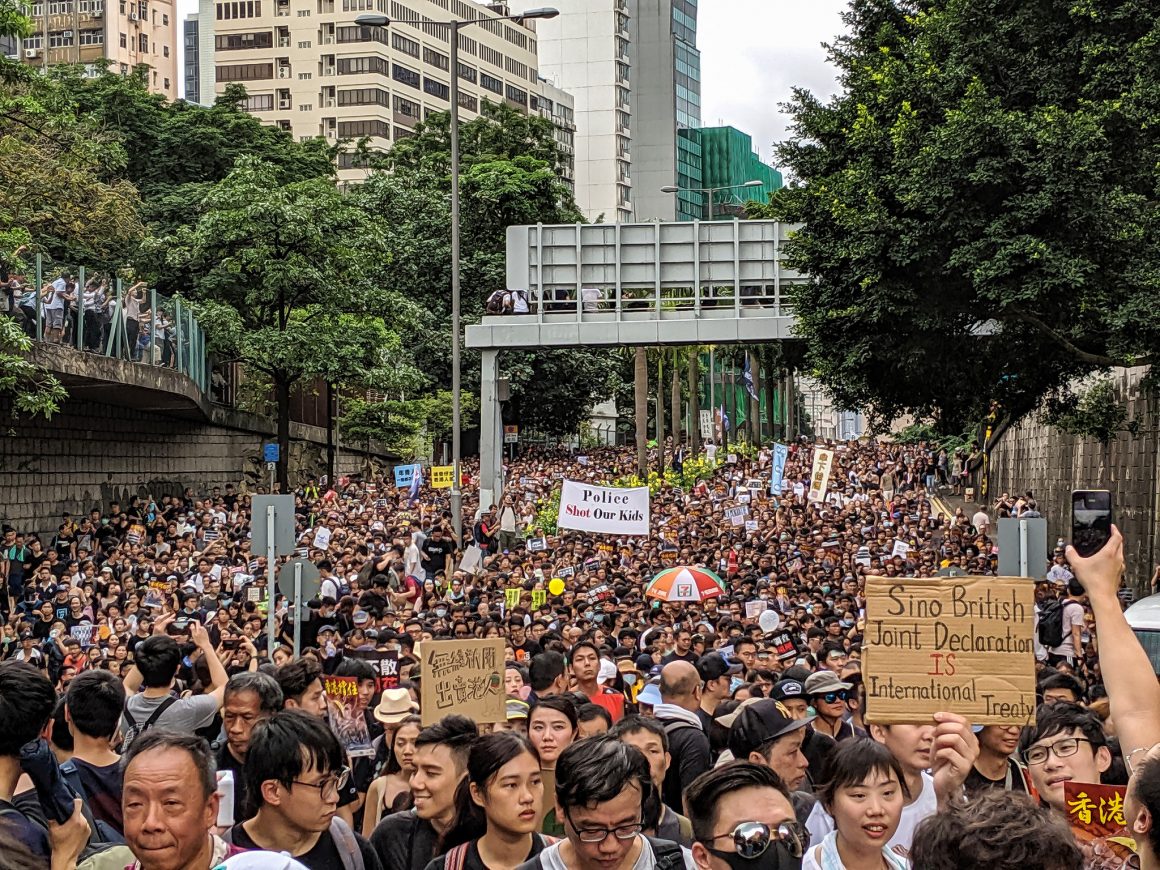
Hong Kong at the breaking point
By Maxwell Stronge, November 13 2019—
Record-breaking protests continue for the sixth straight month in Hong Kong, where citizens are fighting against China’s growing influence over the former British colony.
These demonstrations have grown increasingly violent, as militarized police crack down on dissent using tear gas, live rounds and other forms of riot suppression gear. The protests have drawn global attention and political commentary as they continue to appear in a staggering number of areas across Hong Kong.
From posters here on campus to e-sports tournaments to the NBA — the whole world is watching.
The extradition bill, which prompted the protests last June, has been officially withdrawn, but it appears that the protests will continue until the remaining four demands of the Hong Kong protestors are met.
Hong Kong has an unusual relationship with China. After the First Opium War in 1842, China leased ownership of Hong Kong to Britain for a period of 99 years, during which time Hong Kong was a British colony.
In 1997, Hong Kong was returned to China, but it had developed an entirely different legal and political system than mainland China — arguably, more liberal and democratic. China promised that Hong Kong would be run under the principle of “One Country, Two Systems,” ensuring that it would be able to retain its autonomy. In the face of mounting pressure from the Chinese government, this promise seems increasingly empty to the citizens of Hong Kong.
The recent round of protests was launched by a bill proposed last April that would allow criminal suspects in Hong Kong to be extradited back to mainland China to face a trial. Citizens were disturbed by this as the Communist Party of China (CCP) — the ruling political party of China — is notably authoritarian and prone to doling out harsh punishment to any critical voices.
Protestors took to the streets in June and the demonstrations have grown exponentially since then, growing to include hundreds of thousands of people.
While the protestors are a leaderless group, they have a unified set of five demands. The first is for the extradition bill to be withdrawn, which happened in September. They also demand amnesty for the arrested protestors, an independent inquiry into the police brutality, implementation of complete universal suffrage in Hong Kong and for a change in the legal description of the events from “riot” to something less derogatory, like “protest.”
The chant of the protestors is clear — five demands, not one less. Time will tell if the events in Hong Kong will end in a victory for the people of Hong Kong or the Tiananmen Square of our time.
